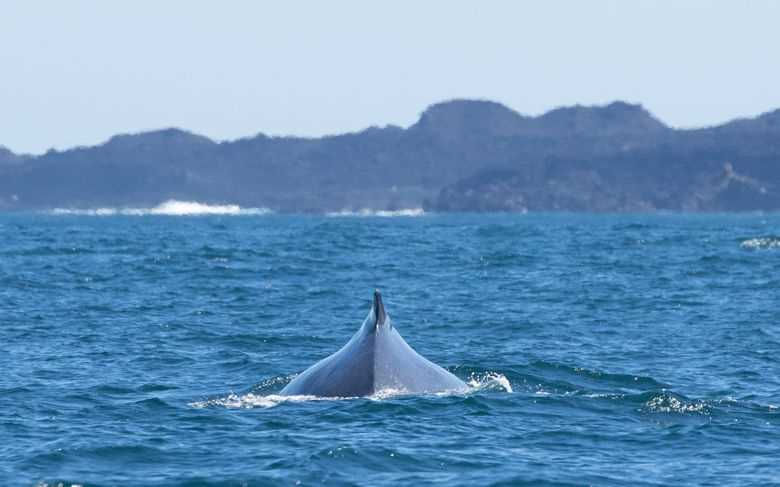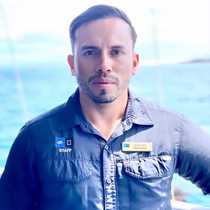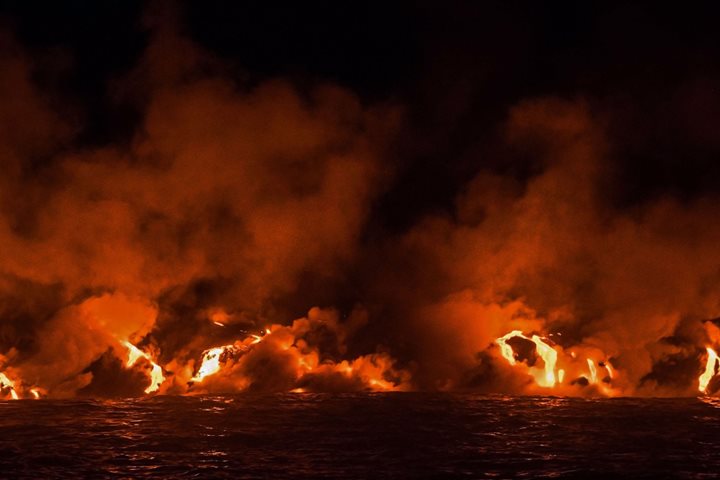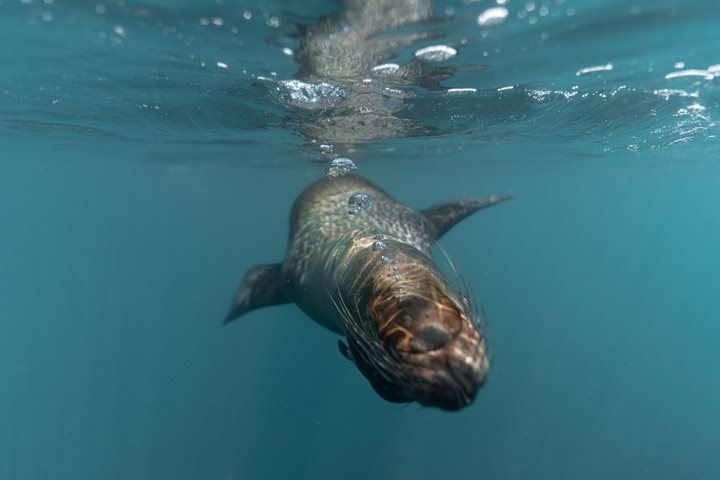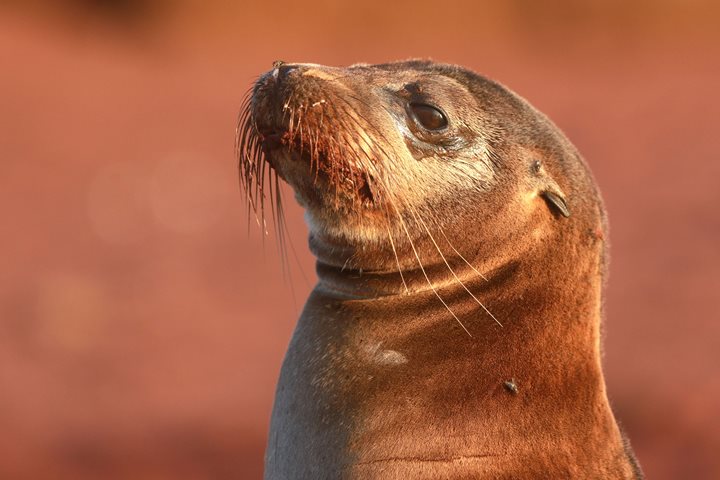We woke up to our expedition leader, Carlos Romero announcing the sighting of approximately 300 common dolphins around National Geographic Islander. We had the best seat in the house at the bow of our ship, and we photographed several of these extraordinary marine mammals swimming toward Isabela Island.
A variety of wildlife can be observed here as these waters are highly productive due to the density of nutrients produced by the Cromwell current upwelling. A few young Nazca bobbies were seen flying above the ship. After breakfast, we went on a Zodiac ride along the coast of Punta Vicente Roca where we encountered flightless cormorants, Nazca boobies, Galapagos sea lions, Pacific green sea turtles, and brown noddy terns. We even went out into open water and saw the ocean sunfish, an odd-looking sea titan, which when fully grown can weigh over a thousand pounds.
While Zodiac riding, we could see the spout of a whale in the distance. As we carefully approached, we came across a large female humpback whale with its calf. We photographed these cetaceans as they swam near our Zodiacs for a few minutes. It was an incredible show, and a tremendous Zodiac ride.
After lunch, we had a dry landing on the pristine island of Fernandina. This time, exploring Punta Espinoza, the only visitor site found here. In the distance, the large mother volcano known as “La Cumbre” can be seen. This giant created the whole island, and its last eruption was nearly a year ago. We were greeted by hundreds of marine iguanas piled on top of each other for body heat. Young lava fields with pioneer lava, cacti, and flightless cormorants nesting occupied the coastal areas of our trail. We saw a couple of week-old sea lion pups nursing, and several sea turtles resting within the tide pools left behind by the low tide. As we watched, we had a Galapagos hawk fly right near us! After much wildlife spotting, we returned to our home away from home, leaving behind the youngest formation in the Galapagos, and one of the most unspoiled islands in the tropics.

